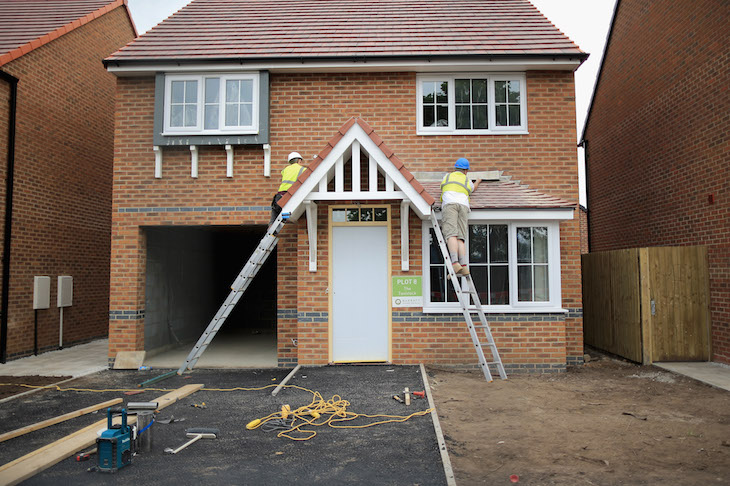The Conservative Party conference kicked off with news that the government plans to earmark an additional £10 billion for the Help to Buy scheme to support 135,000 home buyers.
Theresa May’s extension to David Cameron’s flagship housing policy, which has helped over 320,000 buyers since its launch in 2013, is part of a raft of eye-catching measures to win over voters under 45 who deserted the Conservatives in the last election.
With house prices now almost eight times the average income and many struggling to afford a home, housing has become a critical political issue. The increase in cash is a clear attempt to appeal to the young hoping to get on the housing ladder.
But is this short-term measure enough to fix the broken housing market?
Last week we heard we heard a series of more radical measures on housing from Jeremy Corbyn including rent controls, tax on undeveloped land held by developers and use of compulsory purchase powers.
By lurching back to housing policies that belong in the last century, Labour has left the centre ground wide open. It is the challenge for the Conservatives to fill it with a broader vision beyond Help to Buy.
Housing policy must shift away from the adversarial narrative that became entrenched in the second half of the twentieth century, pitting homeownership, too often seen as a vehicle for creating Conservative voters, against social housing viewed as depositaries of Labour supporters.
Debates between social housing versus homeownership are an anachronism. We need both. We also need to bridge the gap with a far bigger layer of ‘intermediate’ housing in between such as shared ownership schemes.
Many studies, including the English Housing Survey, show that homeownership remains the most popular form of tenure and that many, including social tenants still aspire to own their own home. But it is doubtful that we can repeat the rapid expansion of the tenure that we saw in the Thatcher years.
Over three million households stepped onto the housing ladder for the first time between 1980 and 1990, helped by policies such as Right to Buy and tax relief on mortgage interest. Growth in homeownership continued under Blair but reached a peak in 2003 in percentage terms, well before the economic downturn and the credit crunch took hold.
The popularity of homeownership, as a lifestyle and investment, fuelled strong growth in residential property prices. At over £200,000 the average home now costs ten times more than it did in 1979. High levels of Stamp Duty add further to the cost.
Help to Buy has helped briefly to arrest the decline in homeownership but has not reversed it. Instead we have seen a continuous growth of the private rented sector.
Many of these tenants are priced out of homeownership and are renting for far longer than their parents. But the sector is also increasingly accommodating tenants on benefit as the pool of traditional social housing shrinks. Against this backdrop, spending on housing benefit has increased by 44 per cent per cent in England and Wales since 1996/7.
The housing market can not be changed overnight and will require a range of different interventions, including support for a wider mix of tenure. The Housing White Paper recognises that. More recently, Sajid Javid’s announcement of a green paper on social housing has shifted the conversation further still.
There is no reason why a Conservative government should not be builders of homes for all. Council house building peaked in 1953 when Harold Macmillan served as housing minister under Churchill. History also shows that the largest volume of new homes were built in the 1960s when both the public and private sector were pulling together.
This government wants to build 250,000 new homes a year.
Delivery on this scale requires sustained support over the long-term by government at all levels and MPs in their constituencies. This means having difficult conversations with those who oppose development. It also means recognising that public attitudes will not change unless developers improve the quality and style of new buildings and deliver well-designed homes that enhance neighbourhoods. It is a big challenge that will test the Government’s resolve on housing. But if they fail, Corbyn has ideas of his own.










Comments